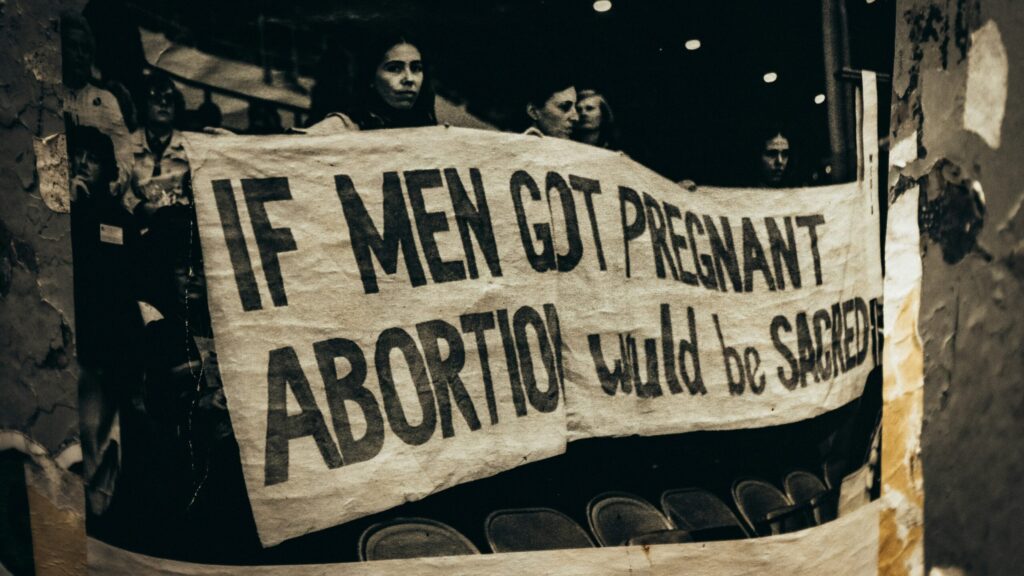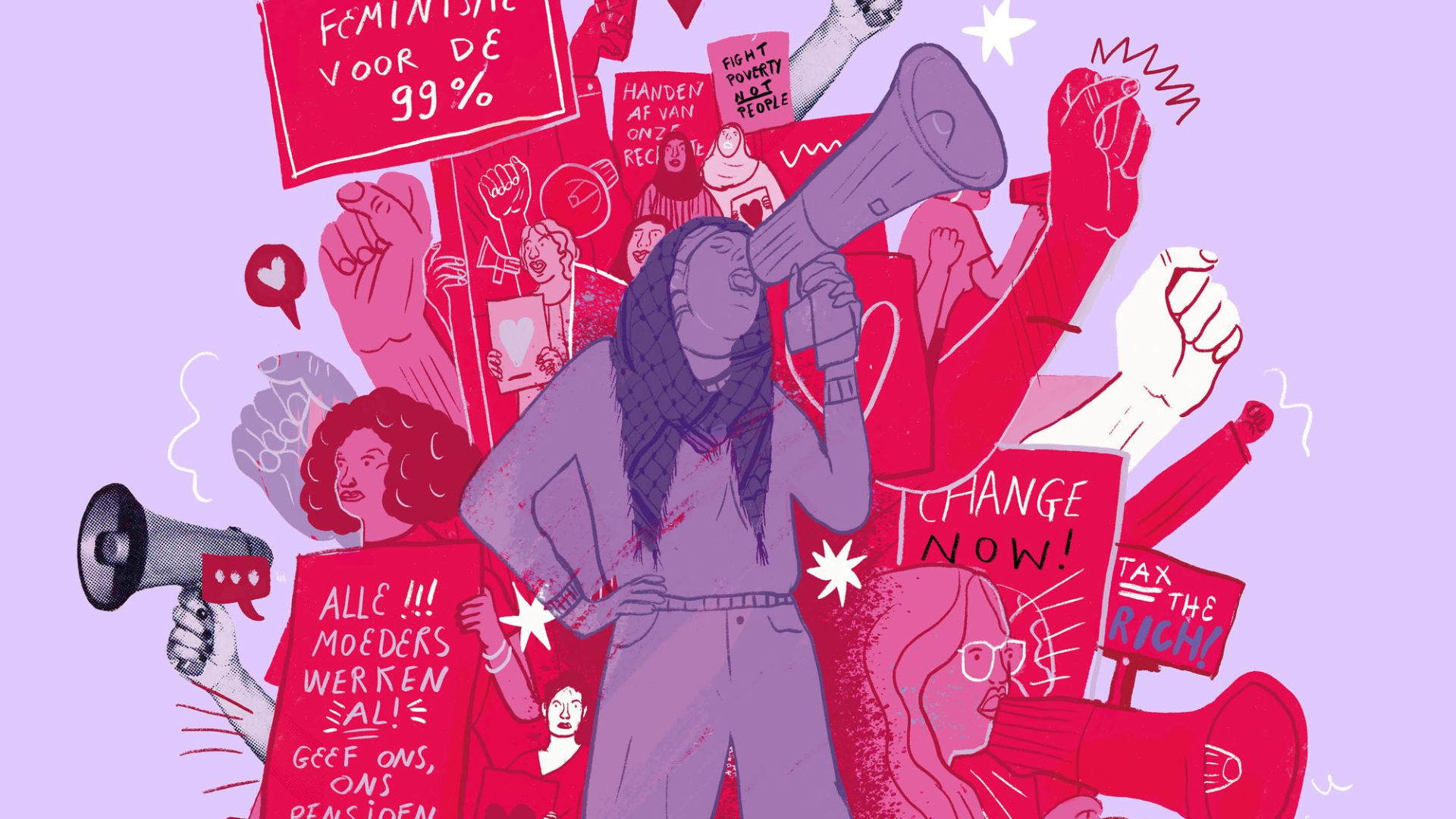
September 28: the right to safe abortion remains urgently relevant
Every year on September 28, the International Safe Abortion Day is commemorated — an important date for international feminist movements. Although many women today have access to this fundamental right after long and hard-fought battles, it remains uncertain, threatened, or even non-existent for many others.
From an intersectional feminist perspective, this day is not merely symbolic. Beyond remembrance, it is also a collective call for reproductive rights, bodily autonomy, and equality for all people involved, regardless of their gender, origin, social status, or identity.
A History of Struggle and Solidarity
n the 1990s, local feminist movements from Latin America and the Caribbean declared September 28 a day of struggle for the decriminalization of abortion. Since then, it has spread across continents, bringing together thousands of activists, associations, collectives, and NGOs around the world every year.
Historically, the right to abortion has always been controlled by the state, patriarchal structures, and religious authorities. In countries where abortion is still banned, pregnant people are often forced to resort to clandestine, non-medical abortions that are harmful to their health and endanger their lives.
Abortion rights were only legalized after decades of feminist protest — for example, in France with the Veil Law of 1975, in Belgium in 1990, and in Canada, where the right is based not on a law, but on a 1988 Supreme Court decision.
A Fundamental Right Under Constant Pressure
Although abortion rights seem secure in many regions, recent setbacks remind us that this can never be taken for granted.
In Poland, abortion has been almost entirely banned since 2020, and in 2022 the U.S. Supreme Court overturned the 1973 Roe v. Wade ruling, which had guaranteed the right to abortion across the United States. The reversal triggered a wave of anti-abortion laws in numerous states.
Thanks to persistent feminist protest, other countries have made significant progress by legalizing abortion — Argentina in 2020, Colombia in 2022, and Mexico in 2023.
If these victories prove anything, it is that collective resistance works, even in conservative environments. However, abortion rights are always inextricably linked to broader social factors, with the most vulnerable groups being hit hardest.
Canada: A Legal Right with Unequal Access
In Canada, abortion has been legal for more than 35 years, though it is not enshrined in any federal law. It is considered a regular medical procedure protected under constitutional rights to liberty and security.
However, legality does not always mean accessibility. Access to abortion in Canada varies greatly depending on the region or province: while Québec offers an extensive support network, in regions such as New Brunswick or Northern Canada, services are nearly non-existent.
It is also often overlooked that every doctor in Canada has the right to refuse to perform an abortion for personal or religious reasons. They are, however, required to refer the patient without prejudice or delay to a colleague or institution. This regulation can perpetuate systemic discrimination, disproportionately affecting Indigenous people, migrants, trans people, and those in vulnerable situations.
Belgium: Rights to Defend and Strengthen
Although abortion was decriminalized in Belgium in 1990, it remains included in the Penal Code. This means it is still treated as a special procedure rather than normal healthcare. Since 2018, it has been permitted to terminate a pregnancy up to the end of the 12th week, with a mandatory six-day reflection period — much to the frustration of sexologists and feminist organizations.
In 2020, a bill was introduced to extend the limit to 18 weeks, but it met strong resistance from conservative parties and religious groups that used their political influence to block its passage.
Moreover, access to abortion remains unevenly distributed: migrants, undocumented people, those in precarious situations, trans people, or people with disabilities often face multiple barriers — a lack of knowledge of their rights, stigma, discrimination, and a shortage of inclusive facilities. It is therefore crucial that policy takes these realities into account.
A Right to Defend — Everywhere and for Everyone
September 28 is not only a day of remembrance; it is a day of collective action. A day to demand that abortion be free, accessible, and unconditional for all — without guilt or shame. To ensure it is recognized as fundamental healthcare, not a privilege or exception and to ensure no one is forgotten in the feminist movement.
In a world where hard-won rights can quickly be lost, it is essential to remain mobilized, united, and vigilant — in Belgium, in Canada, and across the world. Defending the right to abortion means defending the right to make free, dignified, and autonomous choices about one’s own body.
Fighting for Abortion Rights through Culture
In places where abortion rights are threatened or questioned, artists raise their voices to demand their rights, to bear witness, and to resist discrimination and inequality. Music, film, and storytelling become tools of mobilization, remembrance, and feminist solidarity. Here are a few committed works worth exploring:
- Antipatriarca, Ana Tijoux (2014)
An iconic Latin American feminist anthem denouncing patriarchal domination and defending women’s right to control their own bodies. - Mon corps, mon choix, Les Vulves Assassines (2013)
A radical punk cry for bodily autonomy that preaches the fundamental right to free and unconditional abortion. - Annie Colère, Blandine Lenoir (2022)
A powerful film about MLAC activists in 1970s France, whose fight led to the legalization of abortion. A tribute to those who turned anger into collective action. - O corno. Une histoire de femmes, Jaione Camborda (2024)
This film tells the story of Maria, a woman helping others obtain clandestine abortions in Franco-era Spain of the 1970s — a moving portrait of female solidarity under repression. - La Décision, Julie Peyrat (2023)
A compelling podcast exploring the intimate experience of abortion — a sensitive reflection on choice, doubt, and individual freedom.
Sources
- Figo – Homepage
- 28 septembre : L’Amérique latine et les Caraïbes dans la lutte féministe pour l’avortement légal – Capire
- Journée mondiale pour la dépénalisation de l’avortement : les Américaines au front | TV5MONDE – Informations
- Poland moves to near-total ban on abortion, sparking protests | CNN
- Poland abortion: Top court bans almost all terminations
- Argentina: Legalization of abortion is an historic victory – Amnesty International
- Argentina abortion: Senate approves legalisation in historic decision
- Mexico supreme court decriminalizes abortion across country | The Guardian
- L’avortement au Canada | L’Encyclopédie canadienne
- L’accessibilité de l’avortement au Canada : la géographie comme obstacle à l’accès en Ontario et au Québec – Inquiries Journal
- Coup d’œil sur l’accès : Les services d’avortement au Canada | Action Canada pour la santé et les droits sexuels
- Le droit à l’avortement en Belgique – Amnesty International Belgique
- La Chambre sort l’IVG du Code pénal mais ne le dépénalise pas – Le Spécialiste
- Centre d’Action Laïque – Belgique
- L’avortement en Belgique : en route vers une réelle dépénalisation ! – Sofelia
Originally written in French by Faustine Stricanne
Intern at Amazone


